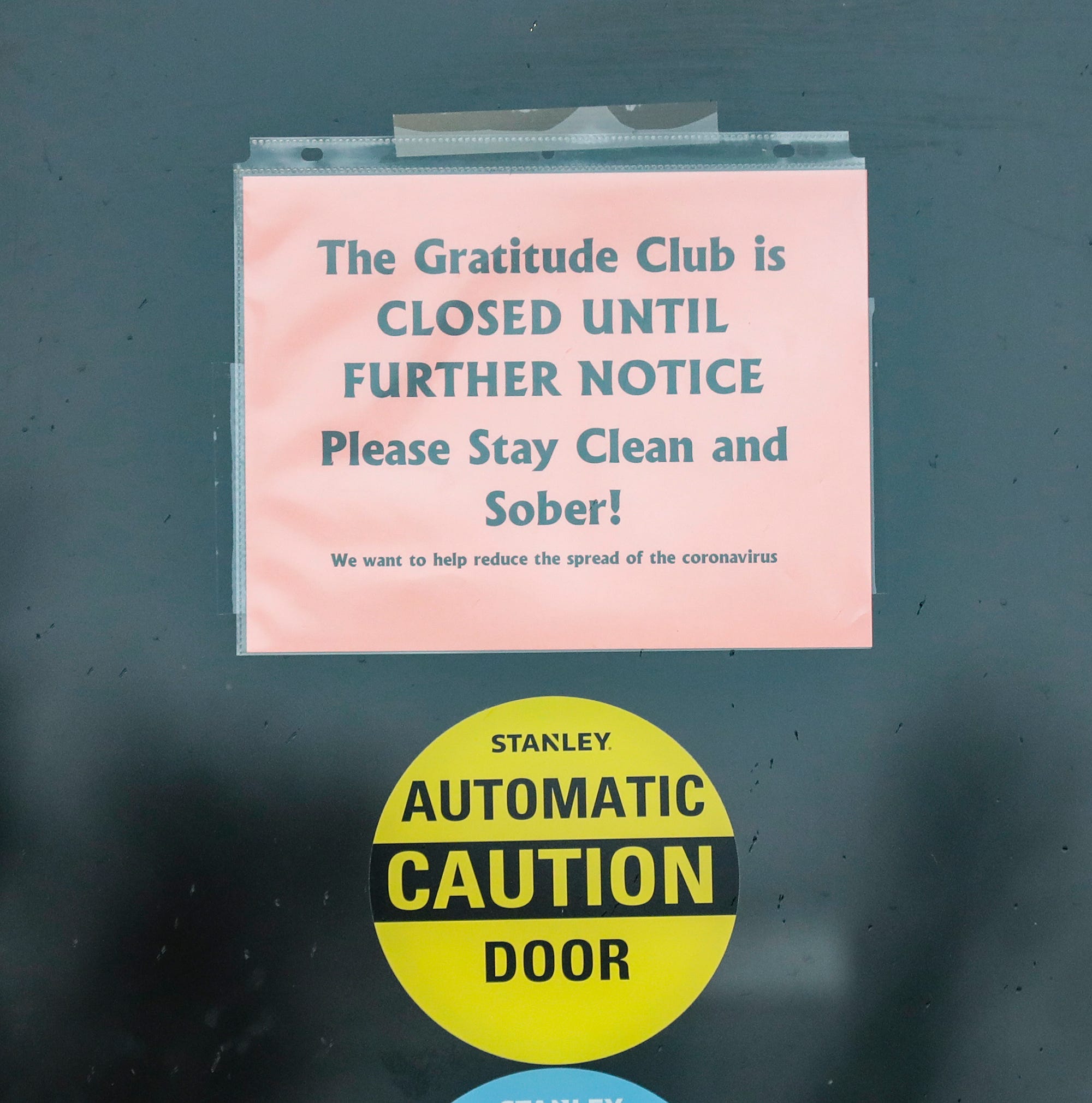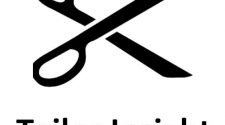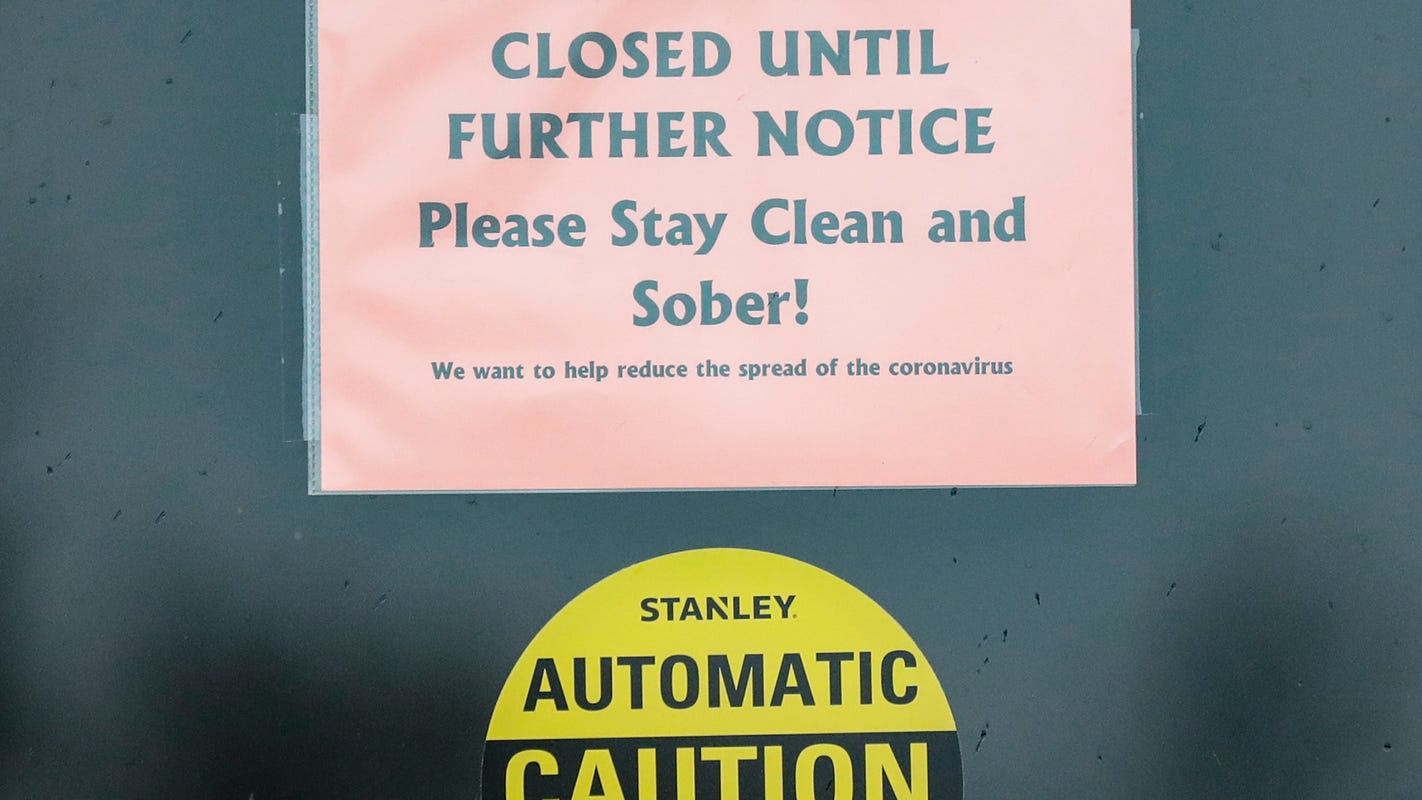 Buy Photo
Buy Photo
A sign on the Gratitude Club door Thursday, March 19, 2020 in Fond du Lac, Wis. announces it is closed. (Photo: Doug Raflik/USA TODAY NETWORK-Wisconsin)
As the COVID-19 pandemic pushes many into isolation, local recovery centers are finding new ways to offer fellowship without increasing the risk of spreading the virus.
On a typical day, visitors of Fond du Lac’s Gratitude Club would come inside to find people enjoying coffee and conversation at the counter, and a schedule stacked with 12-step meetings — a cornerstone of many programs for those recovering from addiction.
However, life under the virus is anything but typical.
On Tuesday, the Gratitude Club board voted to close the facility, the difficult decision made to protect the welfare of all its members Gratitude Club Manager Ellen Buretta said.
Recovery centers respond to virus order with closure
Club members span a wide range of ages, and there many who are “immuno-compromised,” as well as a portion who are smokers, putting some at a greater risk than others. Trying to eliminate the spread through social distancing presents challenges, as it asks people to relearn behaviors, which for members include no longer hugging and holding hands at the end of meetings.
This becomes even more difficult when some believe the virus is just “going to blow over and go away,” she said.
“That’s an ingrained habit. It takes a lot of time to change that,” Buretta said.
The club also needed to abide with an order Gov. Tony Evers gave that day, which limited gatherings to 10 people or fewer. If it stayed open, they would’ve had to find a way to limit the amount of people in its meetings, turning away some, while others got to participate.
In the area, other recovery centers made similar decisions.
In Oshkosh, Solutions Recovery Inc. also found the order too difficult to regulate, and closed, Sober Living Program Coordinator Megan Reinl said.
New ways of fellowship
As isolation can negatively impact those in recovery, the centers turned to virtual meetings as a way “to create a place for people to go” although they can’t do so physically, Solutions Recovery Inc. Board Chairman Trevor Fenrich said.
These online gatherings aren’t new. In fact, they take place all over the world, allowing people to connect who aren’t able to do face-to-face meetings for various reasons.
For Solutions Recovery Inc. and Gratitude Club, they are a way to adapt to the situation, and allow fellowship to continue with its own members.
“For people in recovery, social support continues to be really important to be able to sustain long-term sobriety,” Reinl said. “We wanted to be able to offer some sort of social connection.”
Solutions Recovery began its virtual meetings as they closed on Tuesday, Fenrich said. To maintain the structure, Solutions Recovery’s virtual meetings are held at the same time as the in-person meetings were. Their members have stepped up to chair the meetings, providing an additional aspect of structure.
Each meeting is held through Zoom, a program that allows people to video and audio conference, and has become a “really big platform for the recovery community right now,” Reinl said.
Depending on the technology people own, the platform allows people to feel like they are in the same room with others on the call, Buretta said.
Solutions Recovery has posted information on their meetings to its website, sri-wi.org, and Facebook page. By next week, Buretta hopes to have information about the meetings posted to the Gratitude Club Facebook page, and have members in place to run them.
Already, the page has links to other virtual meetings, including those for Narcotics Anonymous meetings.
Picking up a phone to stay in touch
For those who do not have the technology to participate — or are looking to communicate in other ways — Buretta said many members have exchanged phone numbers and have sponsors, and “will have to utilize them.” She encourages those who need help to set up the meetings, reach out to other members and ask for help.
The Substance Abuse and Mental Health Services Administration, too, notes connecting with a trusted individual as “one of the best ways to reduce, anxiety, depression, loneliness and boredom during social distancing, quarantine and isolation.” Ways suggested to do so include video cats, telephone calls, texting and social media.
Both centers are both available by phone to help answer questions and direct people to resources.
The Gratitude Club can be reached at 920-921-0143, and if someone is not available to answer, they will call back if a message is left.
Those who call Solutions Recovery Inc 920-233-0888 and speak with Reinl, or Fenrich, and its force of volunteers who can provide information and connections to others in the program. Since Tuesday, the center has received “an influx of calls” of people searching for resources, Reinl said.
People can also call Alcoholic Anonymous and Narcotics Anonymous hotlines, at 920-922-7512 or 1-866-635-2254, respectively.
‘You have to go with it’
Although an opening date isn’t known for the centers, Reinl has “the utmost faith” the centers and their members will be able to get through it, she said.
“It’s a terrible crisis. No two ways about it. It’s affecting everybody’s life,” Buretta said. “You have to go with it.”
Contact reporter Sarah Razner at 920-907-7909 or [email protected]. Follow her on Twitter @misssarahrazner.
RELATED: Fond du Lac coronavirus updates: With 14 cases, here’s how the community is responding
RELATED: Streetwise: Fond du Lac restaurants improvise or close after Gov. Evers’ coronavirus order
RELATED: Coronavirus case total in Fond du Lac County climbs to 14, one recovered
Read or Share this story: https://www.fdlreporter.com/story/news/2020/03/19/coronavirus-fond-du-lac-oshkosh-recovery-centers-look-technology/2876242001/














